Grandparents play a unique role in their grandchildren’s lives, offering wisdom that parents sometimes can’t provide. Their influence often works like gentle rain rather than a thunderstorm – subtle but deeply nourishing. The special bond between grandparents and grandchildren creates lasting impressions that help shape values, build character, and establish traditions that can guide children throughout their lives.
1. Unconditional Cheerleaders
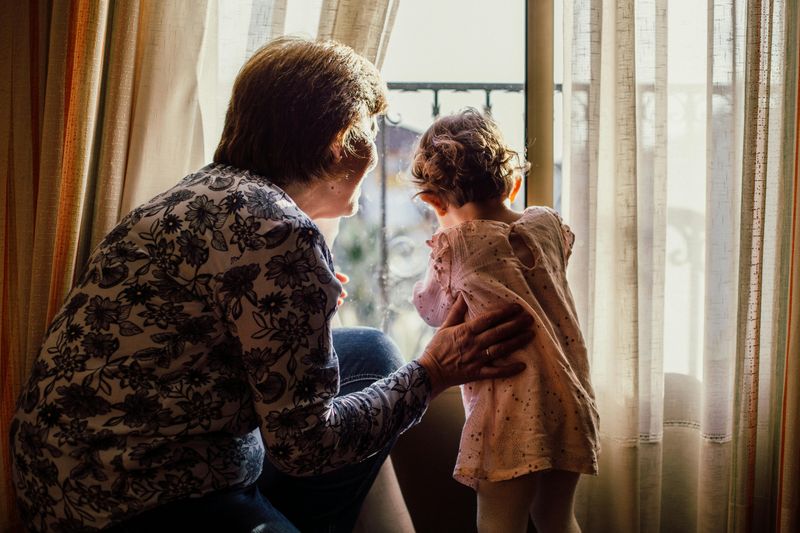
Unlike parents who must balance discipline with support, grandparents often provide pure encouragement. Their special role allows them to focus on building confidence without the daily parenting pressures.
When a child receives consistent praise and support from multiple loving adults, they develop stronger self-esteem. Grandparents typically have more patience and perspective, celebrating small victories that busy parents might overlook.
This unwavering support creates a safety net for children. Knowing someone always believes in them gives kids courage to try new things and persevere through difficulties. Many successful adults attribute their confidence to having had at least one person who always believed in their potential.
2. Storytellers of Family History

Nobody preserves family stories like grandparents do. When grandma pulls out old photo albums or grandpa recalls his childhood adventures, they’re actually connecting children to their roots.
These stories help kids understand where they come from and give them a sense of belonging in something bigger than themselves. Children learn about relatives they never met and challenges their family overcame.
Family stories often contain hidden lessons about perseverance, courage, and values that shaped the family. Research shows children who know their family history tend to have stronger self-identity and greater resilience when facing their own challenges.
3. Keepers of Forgotten Skills
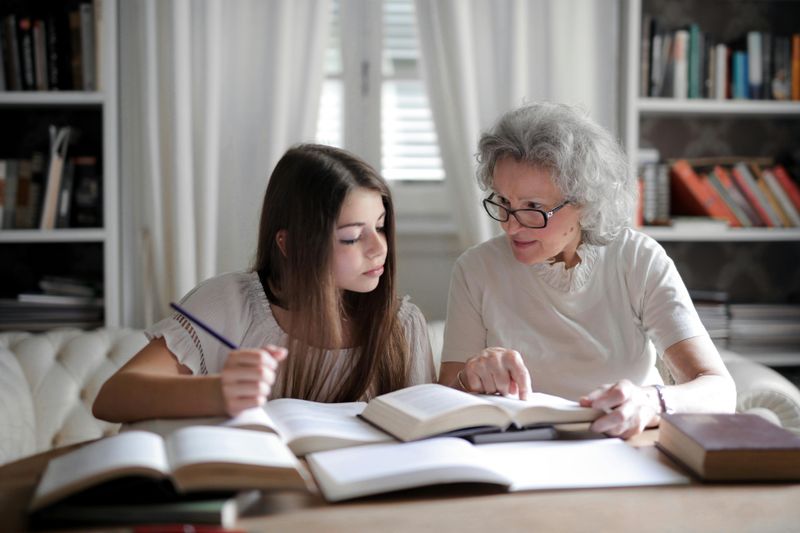
Grandparents often maintain skills that are becoming rare in our digital world. Whether it’s grandma teaching a child to knit, bake bread from scratch, or grandpa showing how to fish or fix a bicycle, these hands-on lessons are irreplaceable.
Beyond just learning practical skills, these moments create opportunities for conversations and bonding that might not happen otherwise. Children absorb not just the skill itself but also patience, attention to detail, and pride in craftsmanship.
Many adults fondly remember these learning experiences as some of their most valuable childhood memories. These skills often become lifelong hobbies or even careers that might never have developed without a grandparent’s guidance.
4. Living History Teachers
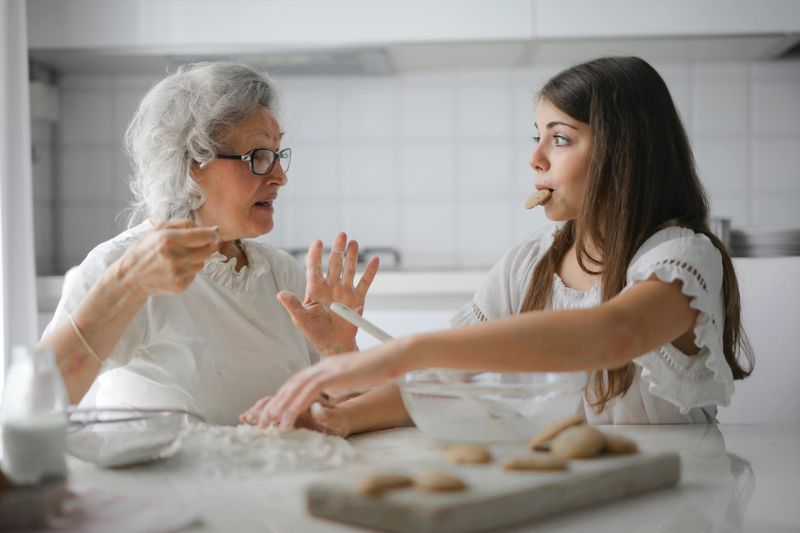
Grandparents serve as walking history books, having lived through events kids only read about in textbooks. Hearing firsthand accounts of historical moments makes history real and relevant in ways no classroom can match.
When grandparents share stories about growing up during different eras – perhaps during wartime, civil rights movements, or before modern technology – children gain perspective on how society has changed. These personal connections to history help children understand both progress and persistent challenges.
Many teachers notice that students with close grandparent relationships often show greater interest in history and social studies. The emotional connection to the past through someone they love helps children care about history rather than seeing it as just dates and facts.
5. Models of Unconditional Love
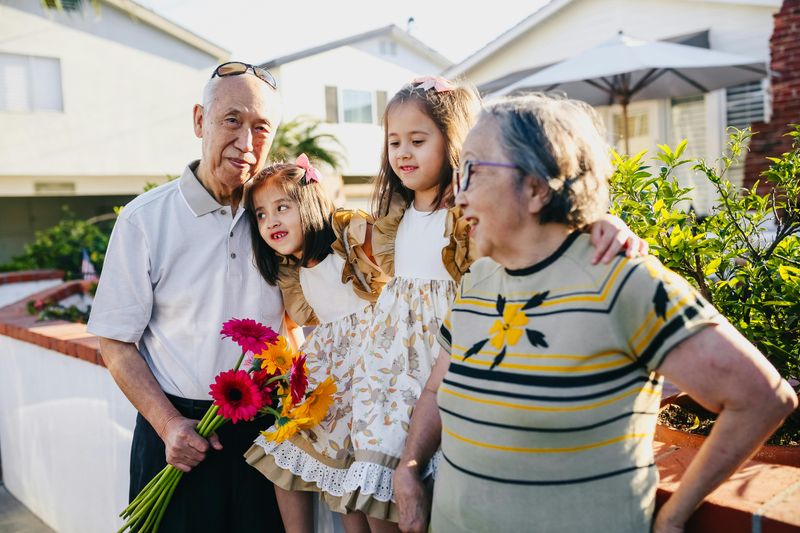
Grandparents often provide a unique form of love – one without the daily discipline responsibilities that parents carry. This relationship shows children what pure acceptance feels like.
When children make mistakes, grandparents typically focus more on comfort than consequences. This doesn’t undermine parental authority but rather complements it by ensuring kids know they’re valued regardless of performance or behavior.
The security of this unconditional love creates emotional resilience. Children who feel deeply loved by extended family members tend to have better mental health outcomes and stronger relationship skills later in life. This foundation of acceptance helps children develop healthy self-worth based on who they are, not just what they achieve.
6. Patience Personified

With the perspective that comes from raising their own children, grandparents often bring remarkable patience to their grandparenting role. This unhurried approach teaches children the value of slowing down in our rushed world.
Grandparents typically allow children to learn at their own pace, whether it’s mastering a game, completing a puzzle, or understanding a concept. This patience communicates respect for the child’s learning process and builds their confidence.
Many grandparents have the luxury of time that busy parents may lack. A grandmother who spends an hour watching ants with a curious toddler or a grandfather who listens to every detail of a child’s story demonstrates that the child’s interests and thoughts are worthy of full attention.
7. Cultural Heritage Guardians
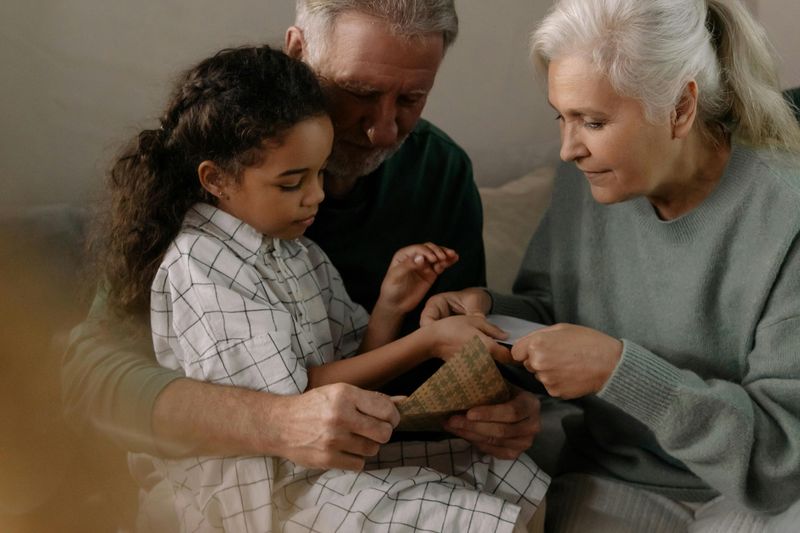
Grandparents naturally become the keepers of cultural traditions that might otherwise fade away. Through holiday celebrations, special recipes, music, language, or religious practices, they pass down cultural identity to the next generation.
When grandparents teach children traditional songs, foods, or customs, they’re providing more than just activities – they’re giving children roots and a sense of belonging. This cultural foundation helps children understand their place in the world and builds pride in their heritage.
Research shows that children with strong connections to their cultural backgrounds tend to have better self-esteem and stronger identity development. Even in our globalized world, knowing where you come from provides a foundation for understanding who you are and where you might go.
8. Wisdom Without Pressure
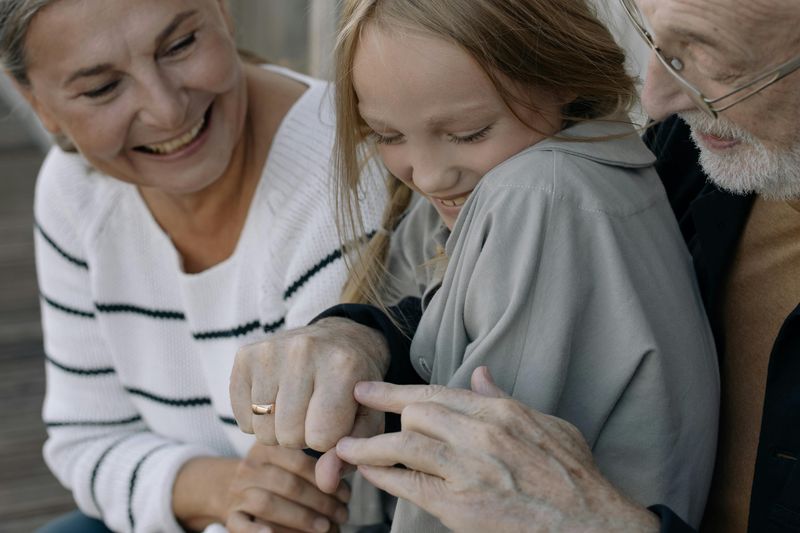
Grandparents offer guidance that comes with a special quality – it’s wisdom without the immediate pressure of parental authority. Their advice often lands differently because children don’t feel the same push to rebel against it.
The distance from day-to-day parenting allows grandparents to share life lessons through stories rather than lectures. Children absorb these messages more easily when they come wrapped in an entertaining tale about “when I was your age” rather than as direct instructions.
Many adults report that some of their most important life lessons came from grandparents. The combination of life experience and the special grandparent-grandchild relationship creates perfect conditions for wisdom to be passed down in ways that stick with children throughout their lives.
9. Stability During Family Changes
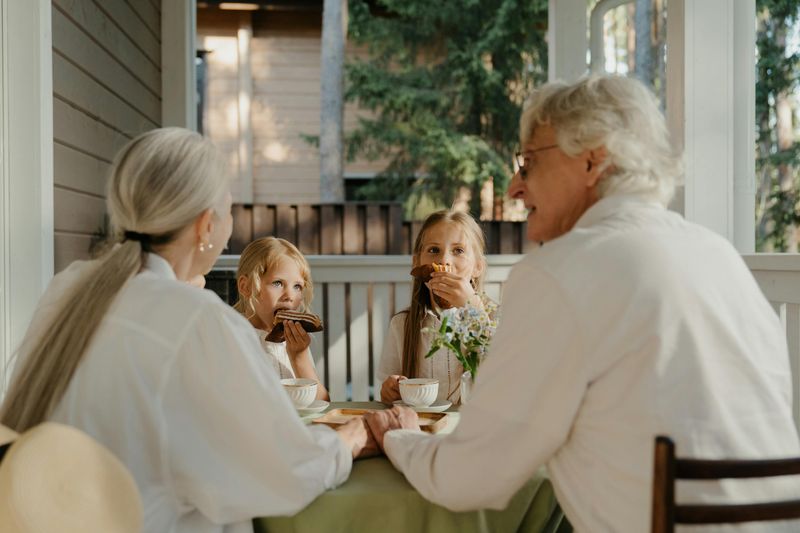
During family disruptions like moves, divorces, or other transitions, grandparents often provide crucial stability. Their home becomes a safe harbor where family traditions continue regardless of other changes.
Children navigate uncertainty by anchoring to relationships that remain constant. When parents are stressed by life changes, grandparents can maintain emotional availability and familiar routines that help children feel secure.
Research confirms that strong grandparent relationships can significantly buffer children against the negative effects of family disruption. Many adults look back on time with grandparents during difficult family periods as having been essential to their emotional wellbeing. This stability creates resilience that serves children throughout their lives.
10. Living Examples of Aging Well

Active, engaged grandparents teach children powerful lessons about the full human lifespan. By demonstrating that older age can be a vibrant, meaningful phase of life, they reshape children’s understanding of aging.
When grandchildren see their grandparents pursuing hobbies, learning new skills, maintaining friendships, and contributing to their communities, they develop positive expectations about their own future. This counters negative stereotypes about aging that pervade our youth-focused culture.
Grandparents who share both their challenges and joys of aging help prepare children for the reality that life brings both struggle and satisfaction in every stage. This honest modeling helps children develop realistic optimism about the entire life journey rather than fearing the later chapters.

Comments
Loading…